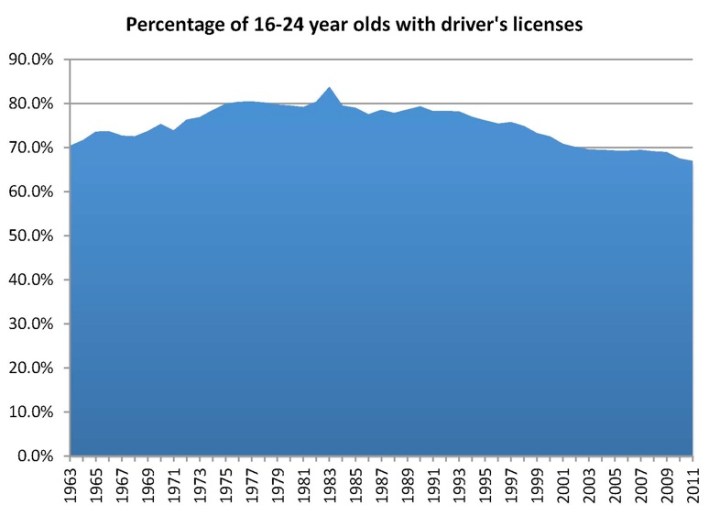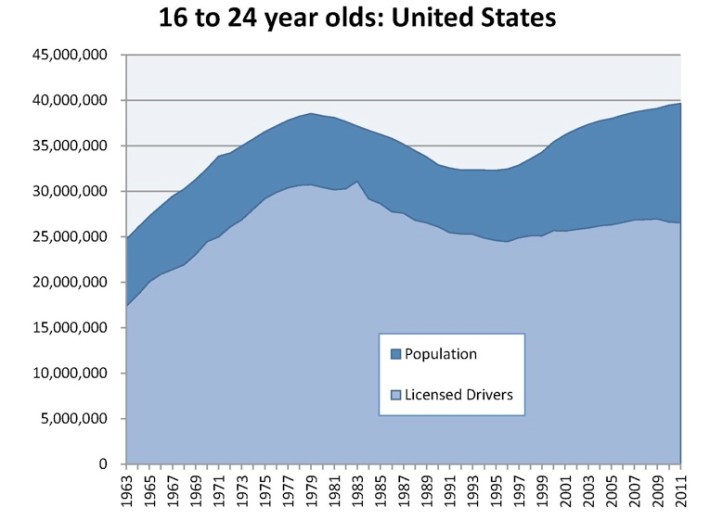Tony Dutzik is senior policy analyst with Frontier Group, a non-profit public policy think tank.
In 2011, the percentage of 16-to-24 year olds with driver’s licenses dipped to another new low. Just over two-thirds of these young Americans (67 percent) were licensed to drive in 2011, based on the latest licensing data from the Federal Highway Administration (FHWA) and population estimates from the Census Bureau. That’s the lowest percentage since at least 1963.
There has been lots of speculation about why fewer young people are getting driver’s licenses (and why even those who do have them seem to be driving less). Is it the economy, which has been particularly brutal for young people lately? Is it the rising cost of gas? Is it the tougher driver’s licensing laws that make it more expensive and difficult to get a license? Is it because young people are too busy cuddling with their iPhones and iPads to get behind the wheel?
There are arguments to be made for any and all of these explanations. But less often is the question asked: Why does it matter that young people just aren't that into cars anymore?
One important reason it matters is because today’s young people are tomorrow’s main users of our transportation systems. If the useful life of the transportation infrastructure we build today -- the highways, light rail lines, bike lanes and sidewalks -- is roughly 40 years, that neatly envelops the peak earning and daily travel years of people currently in their late teens and early twenties. If fewer Millennials are driving, that should influence our choices about how we invest in transportation.
The transportation behaviors of the Millennials are doubly important because there are so many of them. That youth driving should be on the decline now is remarkable since there are now more teenagers and young adults in America than there have been in years. Since 1992, America has gained more than 7.3 million 16-to-24 year olds -- an increase of 22 percent -- but has added only 1.2 million 16-to-24 year old drivers.
The key question for anyone thinking about the future of the transportation system is whether today’s young people will continue to drive less as they get older and move on to new stages of life. The answer to that question doesn’t just depend on external factors such as the economy or even the preferences of the Millennials themselves. It also depends on public policy -- specifically, the degree to which we are able to transform our transportation policy infrastructure from an effective machine for the building of lots of new roads into an efficient provider of the mix of flexible transportation options that Americans of all generations, but especially young Americans, now crave.
Regardless of the reasons for the recent drop in youth driving, the fact that young people are driving less provides a golden opportunity to rethink our transportation and development policies. It’s time for decision-makers at all levels to take advantage of that opportunity.







